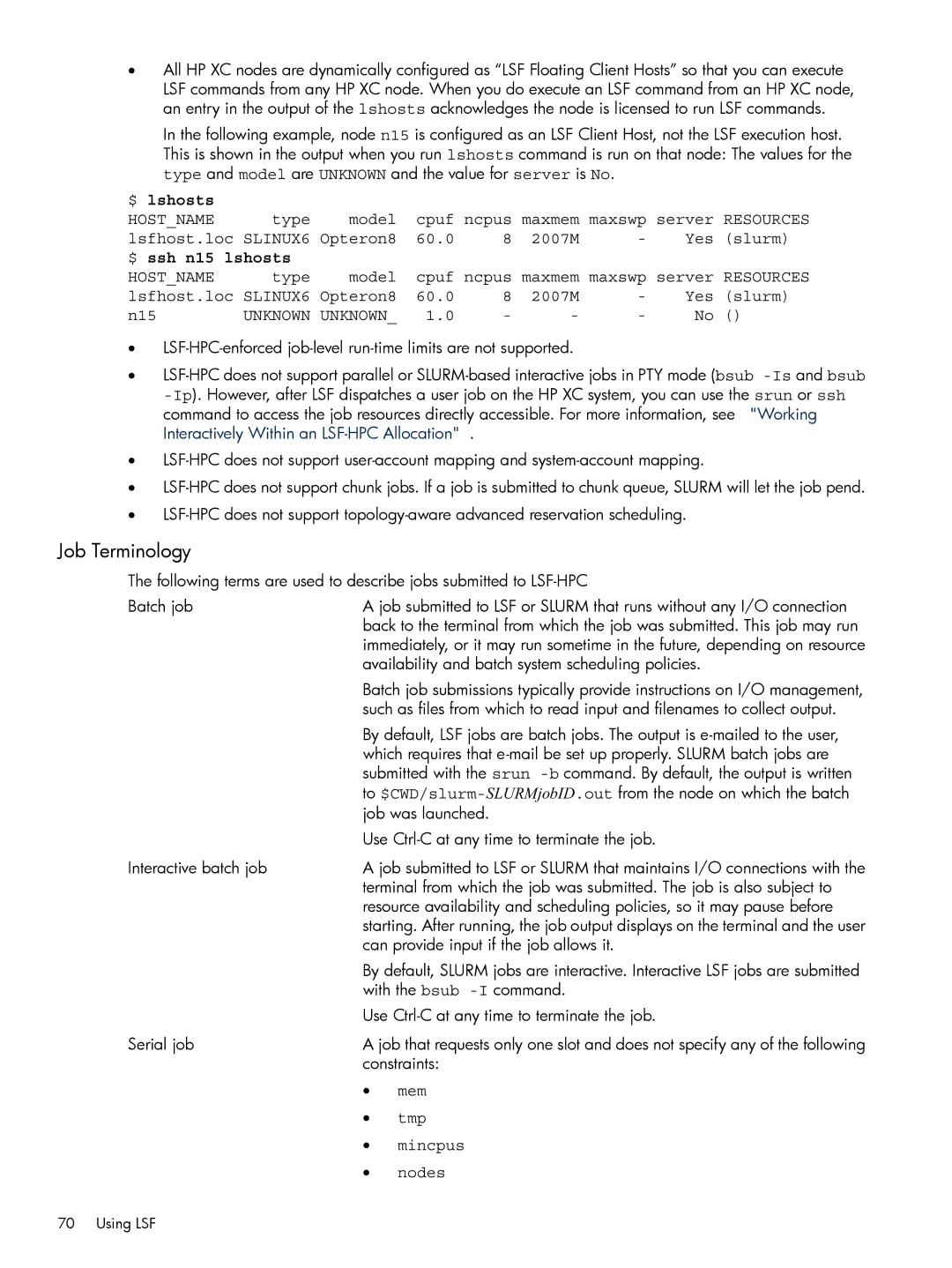•All HP XC nodes are dynamically configured as “LSF Floating Client Hosts” so that you can execute LSF commands from any HP XC node. When you do execute an LSF command from an HP XC node, an entry in the output of the lshosts acknowledges the node is licensed to run LSF commands.
In the following example, node n15 is configured as an LSF Client Host, not the LSF execution host. This is shown in the output when you run lshosts command is run on that node: The values for the type and model are UNKNOWN and the value for server is No.
$ lshosts |
|
|
|
|
|
|
|
|
HOST_NAME | type | model | cpuf ncpus maxmem maxswp server | RESOURCES | ||||
lsfhost.loc SLINUX6 Opteron8 | 60.0 | 8 | 2007M | - | Yes | (slurm) | ||
$ ssh n15 lshosts |
|
|
|
|
|
|
| |
HOST_NAME | type | model | cpuf ncpus maxmem maxswp server | RESOURCES | ||||
lsfhost.loc SLINUX6 Opteron8 | 60.0 | 8 | 2007M | - | Yes | (slurm) | ||
n15 | UNKNOWN UNKNOWN_ | 1.0 | - | - | - | No | () | |
•
•
•
•
•
Job Terminology
The following terms are used to describe jobs submitted to
Batch job | A job submitted to LSF or SLURM that runs without any I/O connection | |
| back to the terminal from which the job was submitted. This job may run | |
| immediately, or it may run sometime in the future, depending on resource | |
| availability and batch system scheduling policies. | |
| Batch job submissions typically provide instructions on I/O management, | |
| such as files from which to read input and filenames to collect output. | |
| By default, LSF jobs are batch jobs. The output is | |
| which requires that | |
| submitted with the srun | |
| to | |
| job was launched. | |
| Use | |
Interactive batch job | A job submitted to LSF or SLURM that maintains I/O connections with the | |
| terminal from which the job was submitted. The job is also subject to | |
| resource availability and scheduling policies, so it may pause before | |
| starting. After running, the job output displays on the terminal and the user | |
| can provide input if the job allows it. | |
| By default, SLURM jobs are interactive. Interactive LSF jobs are submitted | |
| with the bsub | |
| Use | |
Serial job | A job that requests only one slot and does not specify any of the following | |
| constraints: | |
| • | mem |
| • | tmp |
| • | mincpus |
| • | nodes |
70 Using LSF
